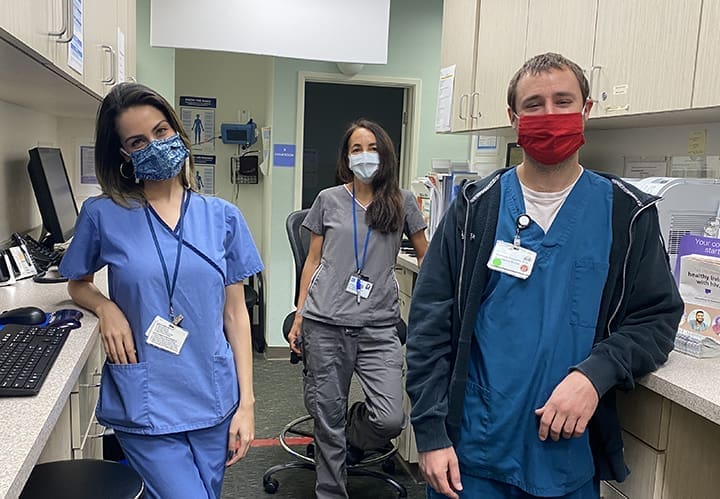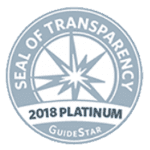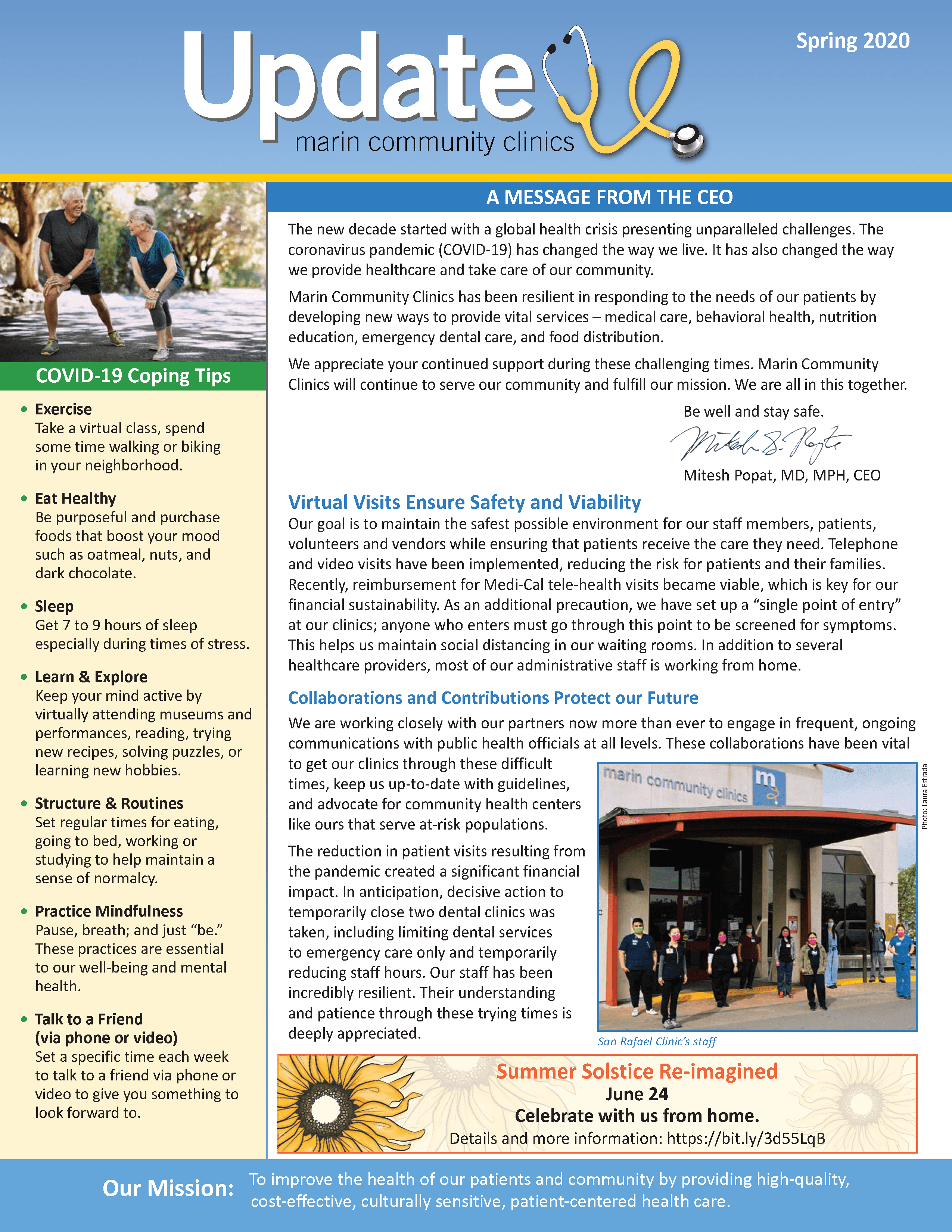
COVID-19 Coping Tips
- Exercise
Take a virtual class, spend some time walking or biking in your neighborhood. - Eat Healthy
Be purposeful and purchase foods that boost your mood such as oatmeal, nuts, and dark chocolate. - Sleep
Get 7 to 9 hours of sleep especially during times of stress. - Learn & Explore
Keep your mind active by virtually attending museums and performances, reading, trying new recipes, solving puzzles, or learning new hobbies. - Structure & Routines
Set regular times for eating, going to bed, working or studying to help maintain a sense of normalcy. - Practice Mindfulness
Pause, breath; and just “be.” These practices are essential to our well-being and mental health. - Talk to a Friend
(via phone or video)
Set a specific time each week to talk to a friend via phone or video to give you something to look forward to.
Message from the CEO
The new decade started with a global health crisis presenting unparalleled challenges. The coronavirus pandemic (COVID-19) has changed the way we live. It has also changed the way we provide healthcare and take care of our community.
Marin Community Clinics has been resilient in responding to the needs of our patients by developing new ways to provide vital services – medical care, behavioral health, nutrition education, emergency dental care, and food distribution.
We appreciate your continued support during these challenging times. Marin Community Clinics will continue to serve our community and fulfill our mission. We are all in this together.
Be well and stay safe.
Mitesh Popat, MD, MPH, CEO
Virtual Visits Ensure Safety and Viability
Our goal is to maintain the safest possible environment for our staff members, patients, volunteers and vendors while ensuring that patients receive the care they need. Telephone and video visits have been implemented, reducing the risk for patients and their families.
Recently, reimbursement for Medi-Cal tele-health visits became viable, which is key for our financial sustainability. As an additional precaution, we have set up a “single point of entry” at our clinics; anyone who enters must go through this point to be screened for symptoms. This helps us maintain social distancing in our waiting rooms. In addition to several healthcare providers, most of our administrative staff is working from home.

Collaborations and Contributions Protect our Future
We are working closely with our partners now more than ever to engage in frequent, ongoing communications with public health officials at all levels. These collaborations have been vital to get our clinics through these difficult times, keep us up-to-date with guidelines, and advocate for community health centers like ours that serve at-risk populations.
The reduction in patient visits resulting from the pandemic created a significant financial impact. In anticipation, decisive action to temporarily close two dental clinics was taken, including limiting dental services to emergency care only and temporarily reducing staff hours. Our staff has been incredibly resilient. Their understanding and patience through these trying times is deeply appreciated.
Tele-Therapy and our Desire for Connection in Times of Isolation
When the shelter-in-place order became a reality, the Clinics’ Behavioral Health team changed its workflows overnight and started contacting their patients via phone and video conference. Knowing that everyone’s mental health was going to be affected, they also began reaching out to other Clinics’ patients who were not yet receiving behavioral health services.
In addition, a text message was sent to patients informing them that tele-therapy services were available. Over 400 positive responses were received along with “thank you” messages, which reminded us of how deep the yearning for connection is, especially in times of isolation. Over 1,000 tele-therapy visits have been conducted since mid-March.
The Clinics Behavioral Health Department’s focus is on assessing and treating problems in mental health, addiction, and life skills, but perhaps more importantly, on cultivating and recognizing innate human resilience and fostering deep connections. Therapy over the phone is not easy. The cues practitioners usually rely on aren’t there, such as reading body language and facial expressions.
As Elizabeth Horevitz, PhD, Chief Behavioral Health Officer, explains, “the best therapy isn’t about doing. It is about ‘sitting with’ and connecting empathically with someone else. We provide psychoeducation, clinical interventions, and resourcing, but being able to sit with someone in their unknown has never been more profound than it is now because it is a shared unknown.”
Department Spotlight
The Clinics’ Call Center Department plays a key role in providing care to our patients and community. The Call Center team does more than schedule appointments, including welcoming people to our clinics and providing them with support in some of happiest and most difficult times. They assess the services needed and work closely with our medical, dental and behavioral health staff across the organization to get each caller to excellent quality care.
Leading “Phone First Care Model”
Since the rise of COVID-19, our Call Center staff has answered 24,000 calls and screened every patient. Our new “call first; don’t drop in” model has increased their workload considerably.
Additionally, the team is now stationed across three locations to enable social distancing. Despite all the changes and challenges, they have worked diligently to ensure that every caller receives the information and the services they are seeking.
“I have great respect for this team because of the complexity and volume of calls that come in to our clinics,” says Leah Canvasser, Chief Informational Officer. “Seeing the commitment our team has to each other, to the organization, and to the members of our community, is truly inspiring.”
Thank you Call Center staff for your hard work and dedication. It is appreciated and does not go unnoticed!
Your Contributions Help Ensure our Future More than Ever
Marin Community Clinics needs your support at this crucial juncture. We have been the recipients of much generosity in recent weeks, and we are deeply grateful for each donation. Government and foundation awards have been a tremendous help, but they do not fully bridge the financial gap that we are now experiencing.
Please give as generously as you can to ensure that Marin’s most vulnerable residents – including those who are newly unemployed and without health insurance – receive essential health care services now and well into the future!
Visit www.marinclinic.org/support-us
Health Hubs Continue to Fill a Gap
Marin Community Clinics’ Health Hubs are distributing free food to over 1,000 people weekly. Before COVID-19, we saw an average of 650 people.
While other Health Hubs activities have been postponed for the time being, the food distribution is open with a drive-thru system, marked off boundaries for those without cars who must stand in line, and enhanced precautions for volunteers. The food continues to be donated by the San Francisco-Marin Food Bank and the Extrafood.org program.
We are grateful to all who keep this program going!
Marin Community Clinics is a 501(c)3 nonprofit organization,
Federal Tax ID number 94-2237120.


